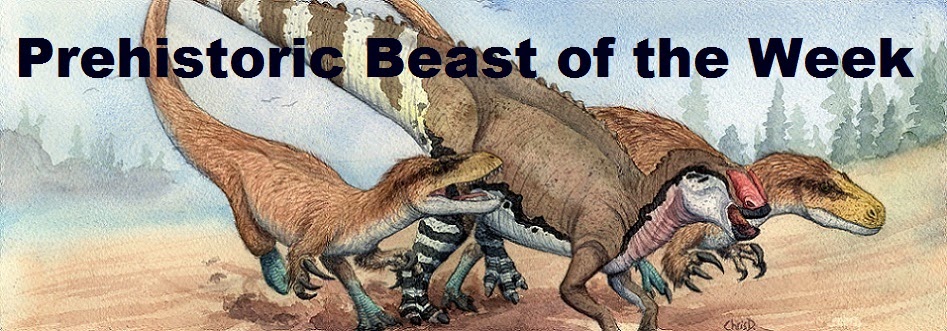Pachyrhinosaurs was a ceratopsian dinosaur, in the same general group that includes the most famous Triceratops, that lived during the Late Cretaceous in what is now North America. There are currently three named species, all from North America. One of these species, the youngest one, Pachyrhinosaursu perotorum, is known from remains found in Alaska! Pachyrhinosaurus has gained popularity in the mainstream thanks to the relatively recent Walking with Dinosaurs 3D movie, which starred Pachyrhinosaurus. In fact, when I use Safari's Pachyrhinosaurus toy to help me teach visitors at the museum, many kids I teach instantly can identify it because of that movie!
Wild Safari has gotten better and better over the years at sculpting their ceratopsians. Their Pachyrhinosaurus is definitely one of the best toys of this genus out there, which was originally released in 2014.
The first thing I notice about this figure is the texture of the skin. It is covered in small mosaic-like scales. among these are fewer, larger scales, creating rosette-like patterns on the dinosaur's body. The sculptor did not make this up. There are actually a few ceratopsian mummies on the fossil record that preserved skin and skin imprints that match this texture. Among them are Triceratops, Chasmosaurus, and most relevant in this case, Centrosaurus, which was most closely related to Pachyrhinosaurus. So while no skin from Pachyrhinosaurus, specifically, is known, and technically there is a chance its skin could have been different from this, the sculptor was using logic and research when creating this piece which is always appreciated. (and makes for a great teaching point from an educational standpoint.)
Pachyrhinosaurus is probably best known for its unique head ornamentation. Unlike many other ceratopsians, which had horns on the nose and over the eye sockets, Pachyrhinosaurus had a wide mass of bone, called a boss, on its snout. This boss would have increased the surface area of the dinosaur's face and probably made a great tool for applying blunt force to whatever the dinosaur chose to ram into when alive. The frill of Pachyrhinosaurus, however, was adorned with horns, especially a pair of curved ones on the top. Safari's model also sports three small horns right in the middle of the shield part of the frill. These middle horns are only present in one species of this genus, Pachyrhinosaurus lakustai.
 |
| The three horns right in the middle of this model's frill give it away as Pachyrhinosaursu lakustai, specifically. |
The other thing that Wild Safari has been getting right about its ceratopsians lately that many other toy companies still fall short on is the number of claws on the front limbs. Ceratopsians have five fingers on each hand, but only the first three of those fingers on each hand actually possessed claws. This model showcases that correctly. The angle at which the front limbs are positioned is also accurate, being slightly bent to the sides.
 |
| Ceratopsians, like all known dinosaurs...and archosaurs in general actually, had claws on only the first three fingers of each hand. |
The one thing that I would complain about on this model would be its lack of bulk. Large ceratopsians, like Pachyrhinosaurus, were notably robust creatures with wide hips. Safari's model is too narrow when viewed from both front and side angles. Overall it gives the appearance of a much more gracile animal than it probably would have been in reality.
That is all for this time! If you are interested in grabbing one of these awesome guys for yourself, they are sold at most educational toy stores, or visit Safari ltd's website here!



No comments:
Post a Comment